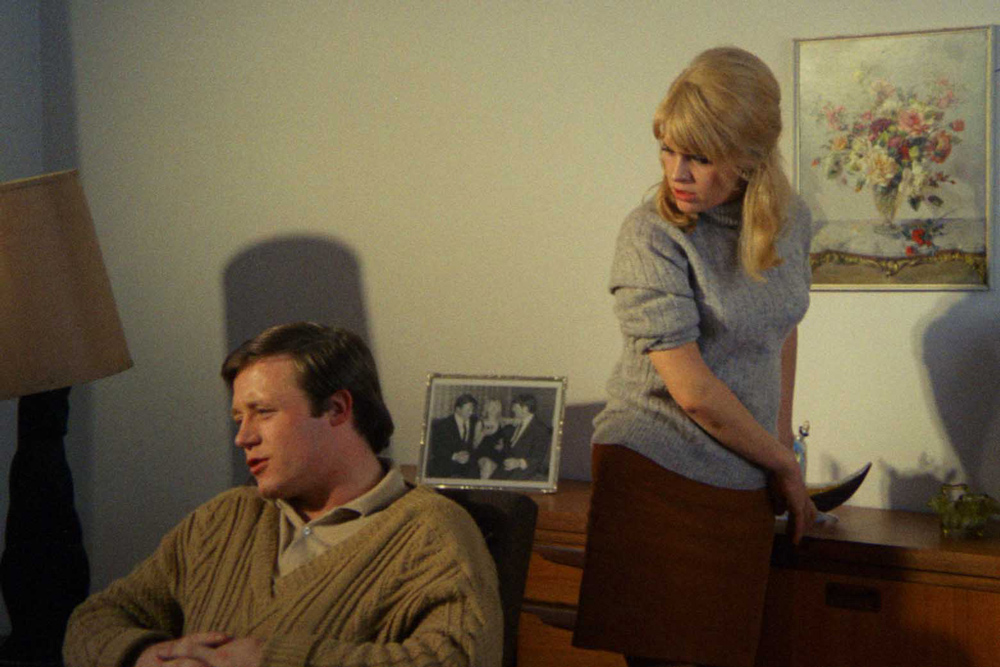
©1967 STUDIOCANAL FILMS LTD.
Ken Loach's directorial debut, ``A Poor Cow,'' has a consistent perspective up to the present day.
2021.12.17
“Poor Cow” Synopsis
Joy, an 18-year-old from a working-class family in London, marries Tom, a young man who makes a living as a thief, becomes pregnant, and gives birth. However, Tom is uninterested in the baby and immediately puts his hands on her. One day after a series of troubles, Tom gets arrested and Joy ends up in trouble at her aunt's house. Then Dave, who was a friend of her husband's, comes to visit. Eventually, she is attracted to the kind Dave and they spend happy days together, but he is also arrested. While continuing to write letters to Dave in prison, Joy tries her best to survive with her young son Johnny.
Index
Colors and collisions of emotions
Ken Loach's theatrical debut, ``A Poor Cow'' (67), follows the BBC anthology dramas ``Up the Junction'' (65) and ``Cathy Come Home'' (66). It is positioned as the culmination of the ``Carol White Trilogy.''
This film has a very symbolic story, with the beginning of a filmmaker's career starting with a childbirth scene, and you can clearly see the themes and methodologies that Ken Loach would experiment with later on. At the same time, here, the brilliance of the raw stone that is unique to the trial period swirls like an impulse inside the restrained tone. A culmination and a starting point. The light blue color scheme, including Joy's (Carol White) costume, blends with the monochrome colors of the cloudy suburbs of London, giving the screen a uniquely pale hue. As the blond-haired Joy struts through the center of the screen, the dazzle of her hair creates a pleasant collision, like flowers blooming in pale monochrome.
“Poor Cow” trailer
This conflicting existence is directly connected to this work and to Ken Loach's methodology. Joy, who was discharged from the hospital just one day early after giving birth, is treated with completely disrespectful words from her husband. At the pub with his friends, Joy's husband teases her. At first glance, it seems like a joke, but by teasing his wife, it also seems like he is showing off to his friends that the woman in front of him is under his control. Joy repeatedly has minor conflicts, but only narrowly avoids a decisive conflict with her husband. It can be said that it is unfortunate that Joy has consciously learned how to avoid conflict. But it accumulates. Joy already regrets marrying this man at such a young age. She is aware that she made a wrong decision that will affect her life.
The expected event occurs. Her husband, who pretends to be a tough guy, is caught red-handed by the police for a robbery. At this moment, Joy's cold, resigned gaze as she watches the whole situation while holding her newborn baby in her arms is a perfect expression of Joy's character in this work. Joy, a captive woman, finds true love when her husband is captured. The ``picture'' of the relationship that was first born when a man was imprisoned is fateful and even symbolic. Joy becomes free when the other is a prisoner. For Joy, men may sometimes be a hindrance.

“Poor Cow” ©1967 STUDIOANAL FILMS LTD.
Still, Joy says she can't imagine life without a man. She wants just the right man who can distract her from time to time. However, this is repeated in her ``The Truth love'' with Dave (Terence Stamp), who is intimate with her and her young son, but also does not hide the fact that he is a criminal. What Joy wants out of life isn't exactly the stuff of dreams (but what a name, Joy!). She lives in a rather dry world of realism. There is an inner conflict here. Ken Loach captures the gradations of emotion that Joy exudes on screen.
``I am cautious about the word freedom because it reminds me of the moment when you loved me.'' At a crossroads in the story, Dave plays a line from Donovan's song while playing the guitar. This passage is not only an echo of the precious moments of lovers, but also a cruel echo of the freedom and fluidity of Joy's character. This is the embodiment of Joy-Carol White, a woman who is both a captive and a woman who, for the first time, takes on a small degree of freedom when her movements are restrained by men.

